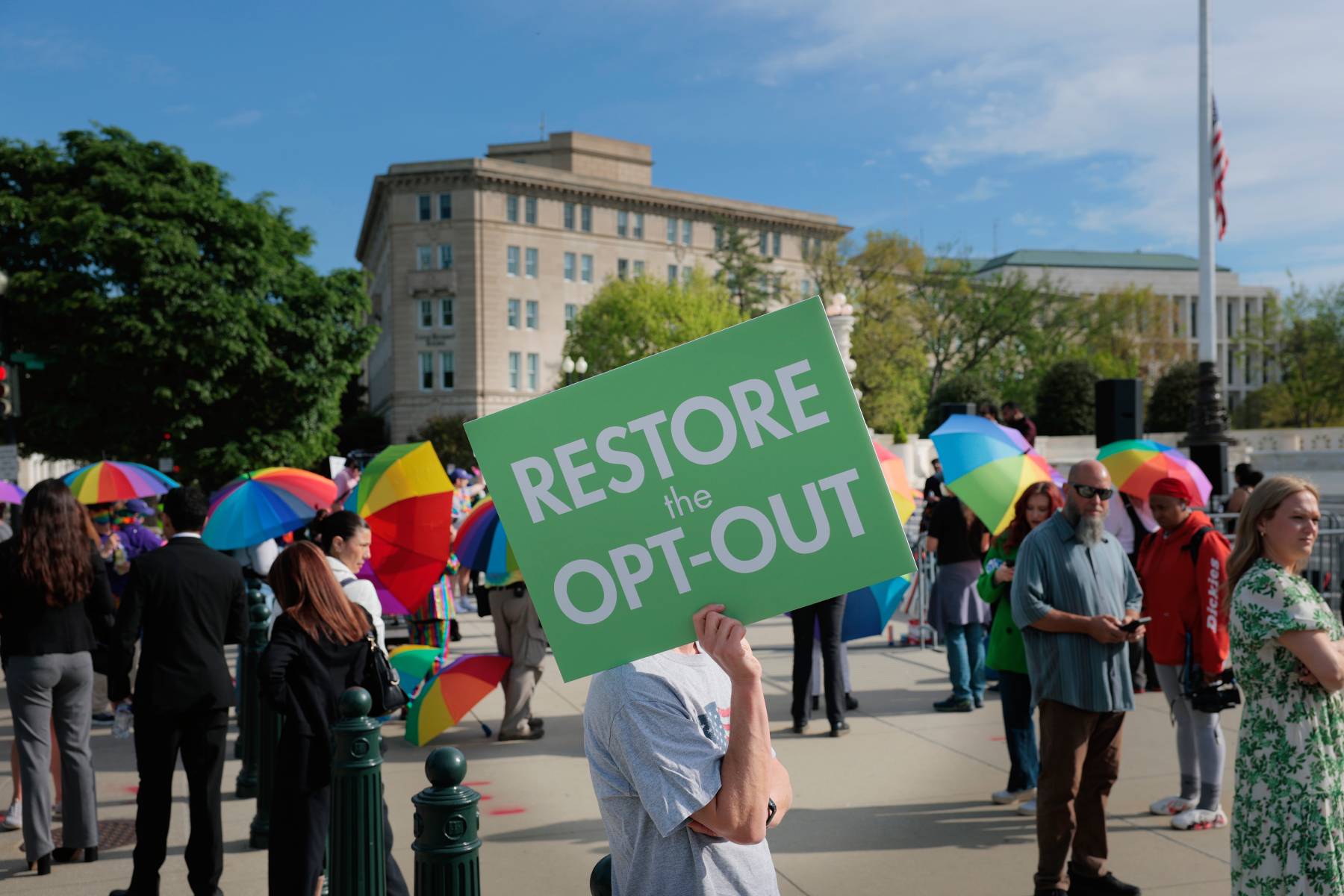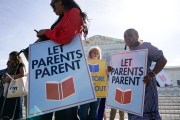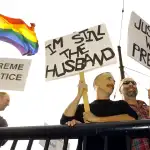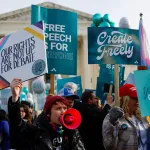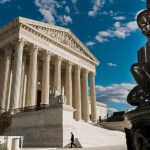The Supreme Court sided Friday with a group of Maryland parents who object to their children reading LGBTQ+-inclusive books in public schools, delivering a win to religious liberty advocates and potentially altering the course of public education nationwide.
In a 6-3 decision in Mahmoud v. Taylor, the court affirmed parents’ rights to opt their children out of reading materials that conflict with their religious beliefs. The court, which has a conservative supermajority, ruled along ideological lines. Justice Samuel Alito wrote the majority opinion.
“We have long recognized,” Alito writes, “the rights of parents to direct ‘the religious upbringing’ of their children. And we have held that those rights are violated by government policies that substantially interfere with the religious development of children.”
The ruling sets a dangerous precedent, education advocates say — one that intensifies ongoing tensions over religion, education and LGBTQ+ rights.
In her dissent, Justice Sonia Sotomayor — joined by Justices Elena Kagan and Ketanji Brown Jackson — writes, “Today’s ruling ushers in that new reality.”
“Casting aside longstanding precedent, the Court invents a constitutional right to avoid exposure to ‘subtle’ themes ‘contrary to the religious principles’ that parents wish to instill in their children. Exposing students to the ‘message’ that LGBTQ people exist, and that their loved ones may celebrate their marriages and life events, the majority says, is enough to trigger the most demanding form of judicial scrutiny.”
She predicts “chaos for this Nation’s public schools” as they’re required to notify parents of any educational content that may infringe upon parents’ religious beliefs.
The dispute began during the 2022-’23 school year when the Montgomery County Board of Education introduced children’s books featuring LGBTQ+ themes — such as a family searching for their lost dog at a Pride parade and a nonbinary child exploring pronouns — into its elementary school curriculum. Although the school board initially allowed parents to remove their children from instruction related to the books, it later rescinded that policy. The opt-outs not only caused logistical challenges, they also stigmatized LGBTQ+ students, according to the board and its supporters. (The Supreme Court ruling includes pages from LGBTQ+-affirming children’s books.)
-
Read Next:
In response, a group of Muslim, Catholic and Orthodox Christian parents sued, claiming the books promoted “gender ideology” in contradiction of their belief systems, using a term the Trump administration has weaponized against trans and nonbinary people. Represented by the conservative law firm Becket: Religious Liberty for All, the parents argued that exposing their children to the books infringed upon their rights under the First Amendment’s free exercise of religion clause.
Alito said that public schools cannot require students to participate in instruction that violates their families’ religious convictions. The ruling means that parents, and not schools, have the ultimate say when it comes to children’s exposure to topics like gender and sexuality.
President Donald Trump applauded the decision. “I think it’s a great ruling for parents,” he said during a press conference Friday. “They lost control of the schools, they lost control of their child[ren], and this is a tremendous victory for parents.”
He said he wasn’t surprised by the ruling but by the fact that parents had to go to the Supreme Court to be heard. The outcome, he said, aligns with his administration’s agenda to prioritize parents’ rights in schools. “I kept saying, “We will give you back your parental rights. They [Democrats] will take it away, and this is a tremendous victory for parents.”
The ruling raises questions about whether the nation’s public schools can remain inclusive environments for students of diverse identities or beliefs. To avoid lawsuits and the logistical burden of classroom opt-outs, some school districts may even preemptively remove books with the potential to cause controversy. The ruling, detractors say, could also lead conservative groups to push for even more curriculum restrictions.
Red states have already passed a series of laws limiting discussions of so-called sensitive topics in schools. If this decision hastens efforts to reshape public education along ideological lines, LGBTQ+ and other marginalized students will be particularly vulnerable to the politics of exclusion that ensues.
“Today the U.S. Supreme Court willfully discounted and ignored the expertise of trained professionals in the classroom,” said Becky Pringle, president of the National Education Association, in a statement. “This decision could have a chilling effect on students for generations to come and could lead to more educators self-censoring, shelving books and lessons, and preventing some already marginalized students from being seen and acknowledged.”
She said that students will ultimately pay the price for censorship and that educators know that students benefit, and learn, from seeing themselves reflected in the curriculum.
“Educators know all students — no matter who they are or what gender they identify with — deserve access to an inclusive public education,” Pringle said. “By creating new, unnecessary legal rules that burden hardworking educators and disrupt their ability to teach, the Court is effectively inserting itself into the day-to-day education decisions about what students can learn and what educators can teach.”
Supporters of the decision are declaring it a win for parental rights. “The Supreme Court has ruled for parents. That’s good: Government mustn’t be able to impose worldviews at odds with people’s religion,” Neal McCluskey, the director of Cato’s Center for Educational Freedom, said in a statement. The Cato Institute is a conservative public policy research organization. McCluskey also expressed hope that parents could have even more power in public schools. “Reading opt-outs are a band-aid, not a cure, for the problem of government schooling in a diverse society,” he said. “We need full education choice, so all families can select education truly consistent with what they need and think is most important.”
The Supreme Court’s decision is another major victory for Becket, the conservative law firm known for winning the 2014 case allowing Hobby Lobby to avoid providing full contraceptive coverage to the women it employs.
Given the ruling, school districts must now function in a legal landscape where religious objections could trump curriculum decisions — upending the learning of millions of students.
